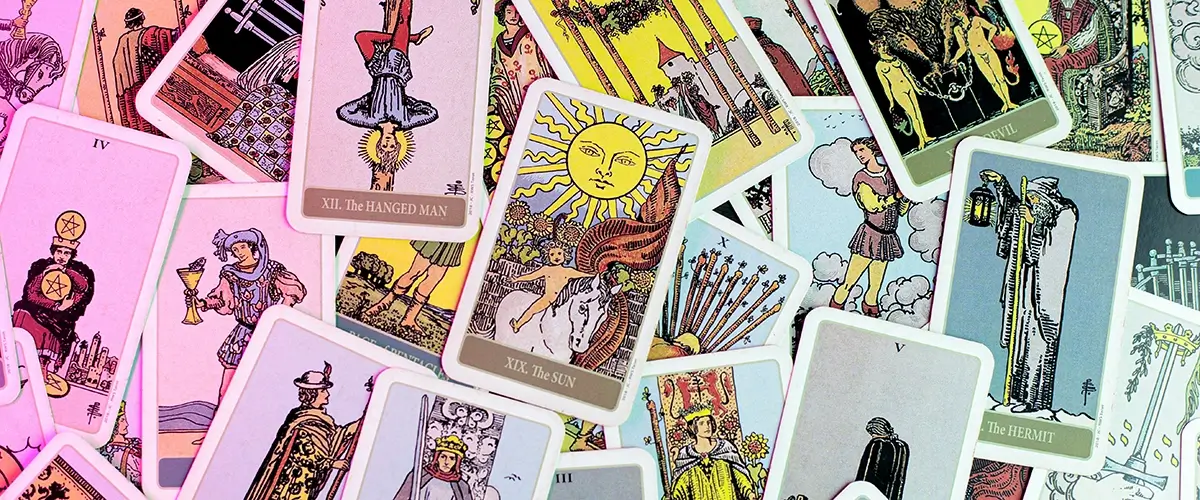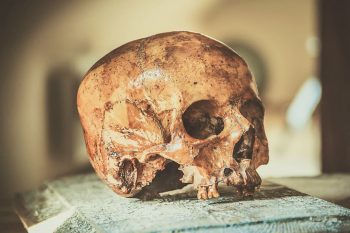What does Divination mean?
Divination is the practice of seeking knowledge of the future or the unknown through supernatural or mystical means. It involves the use of various techniques such as reading omens, interpreting dreams, casting lots, and other methods to gain insight into the future or to uncover hidden knowledge.
Divination has been used by many cultures throughout history, including ancient civilisations such as in Babylon, Egypt and China, as well as by indigenous peoples around the world.
Divination practices can be broadly categorised into two main types: mediumistic divination and manipulative divination. Mediumistic divination involves communicating with spirits or deities to gain insight, while manipulative divination involves physically manipulating objects to uncover information.
Examples of mediumistic divination include mediumship, where a person communicates with spirits, and channelling, where a person allows a spirit or entity to speak through them. Examples of manipulative divination include tarot reading, where cards are used to uncover information, and scrying, where a person gazes into a crystal or other reflective surface to gain insight.
Divination has often been associated with religion and spirituality, and in many cultures, it is considered to be a way of communicating with the divine. However, in modern times, divination has become a more secular practice, with many people using it as a tool for personal insight and self-discovery.
Divination has different forms
Divination can take many different forms and can involve a variety of techniques and tools. Some of the most common forms of divination include:
- Astrology – the study of the positions and movements of celestial bodies in order to gain insight into human affairs and natural phenomena.
- Numerology – the study of numbers and their relationship to the divine and to human life.
- Palmistry – the study of the lines and patterns on a person’s palms in order to gain insight into their character and life path.
- I Ching – an ancient Chinese system of divination that involves casting coins or yarrow stalks to gain insight into the future.
- Rune casting – a form of divination that involves casting a set of inscribed stones or tiles to gain insight into the future.
- Tea leaf reading – a form of divination that involves interpreting the patterns made by tea leaves in a cup to gain insight into the future.
These are just a few examples of the many forms of divination that exist. Each tradition and practice has its own unique beliefs, symbols, and methods, and each can be used for a variety of purposes, including gaining insight into personal life, seeking guidance for decision making, and making predictions about the future.
Some well-known people associated with divination
Divination in its different forms has been around for thousands of years and has been used by many cultures and communities throughout history. Here are just a few examples of well-known individuals who have been associated with divination:
- Michel de Nostredame, also known as Nostradamus, was a 16th-century French astrologer and physician who is best known for his book of prophetic quatrains, “Les Propheties.”
- Jean Dixon was an American psychic and astrologer who rose to fame in the mid-20th century for her predictions about world events and her ability to provide psychic readings to individuals.
- Aleister Crowley was an English occultist, mystic, and ceremonial magician who was active in the late 19th and early 20th centuries. He is known for his interest in divination, including tarot, astrology, and geomancy.
- Sybil Leek was an English witch, astrologer, and author who was active in the mid-20th century. She was known for her interest in divination and her ability to provide astrological readings.
- Gordon Smith is a contemporary Scottish medium and spiritual teacher who is known for his ability to provide psychic readings and for his interest in divination.

